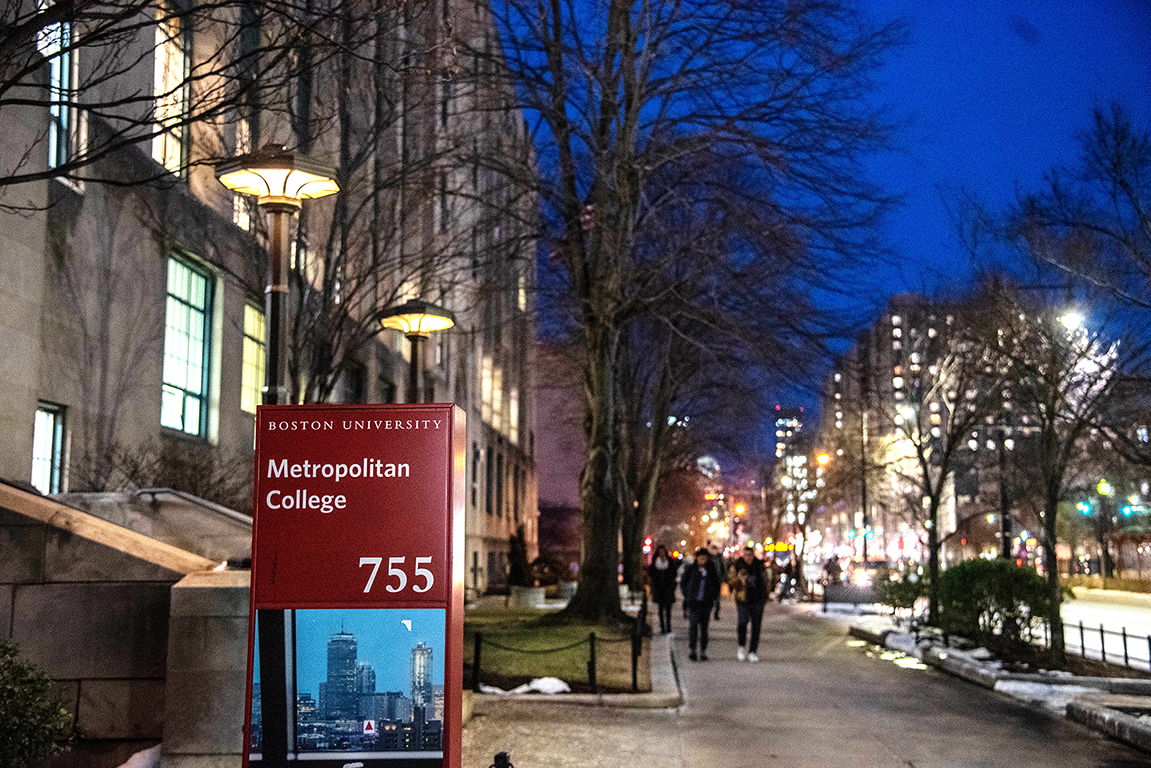Boston University’s Metropolitan College began their Spring culinary arts program Jan. 22. The program will culminate in “The Nasty Bits: A Pop-Up Restaurant,” an event hosted by Boston restaurant moguls Michael Leviton and Tony Maws, with assistance from students in MET.

The pop-up restaurant is a dining event open to BU students as well as public and will take place at 6 p.m. April 29 in the newly renovated Howard Thurman Center, and is priced at $60 per seat.
Lisa Falso, supervisor of culinary programs at MET, said the goal of this pop-up is not only to cater to the general BU community, but also to give MET students the chance to work with two respected professional chefs.
“We’ve been doing these events and trying to highlight our core chefs,” Falso said. “[Leviton’s] been working a lot with [Maws], so it just seemed like a nice partnership that we wanted to bring in and expose our students to.”
While Leviton has been involved with other MET culinary programs in the past 20 years, this will be Maws’ first time working with BU students. The BU pop-up, however, will mark a new experience for both Leviton and Maws.
The term “nasty bits” in the title of Leviton and Maws’ event refers to offals — the parts of animals or even vegetables that are usually thrown away — and will be the main ingredients on the menu, according to Leviton.
“The idea is that nothing should go to waste,” Leviton said.
Leviton, former owner of the French restaurant “Lumiere,” said the separation between animals and humans results in many people having feelings of indifference to the treatment of animals.
“I think that we’re really divorced from this notion of where our food comes from,” Leviton said. “There’s a lot of the animals that doesn’t get used and it’s just incredibly wasteful.”
Leviton said if consumers understood how animals are sacrificed for food, they may be more obliged to use and appreciate all that they’re offered. He also said that often the offals, such as hearts or intestines of animals, taste great if cooked right, despite being perceived with disgust by some.
“We just really want to make sure people get to taste these things [because] they’re delicious,” Leviton said, “and develop an appreciation for them… and an understanding that if we’re going to raise animals, we need to eat these things.”
Maws also believes that using all parts of the animal is important in preparing food, Leviton said.
“We very much come from the same school of this notion [that] not just that sustainability is important,” Leviton said, “but that we really have this obligation to use every little bit [of the animal].”
Steven Le, a freshman in the College of Arts and Science, is a Vietnamese-American and said Leviton’s attempt to introduce a way to use all parts of animals is a great idea.
“First of all, in my culture, we use all parts of the animals, the heart, intestines and more. We find it very delicious,” Le said. “And I think it’s great to organize that culture here in America where they don’t usually use [such] ingredients.”
Sen Teng, a freshman in CAS, said he supports the idea of reducing food waste, but worries about eating certain parts of animals he believes could be harmful to humans. He said that the common occurrence of diseases, such as the current coronavirus outbreak in China and spread of E. coli bacteria, made him feel this way.
“We cannot eat the parts [that are] not good for human beings, right?” Teng said. “For example, you know what’s happening in China? People get viruses from [animals] often.”
William Andronico, a sophomore in the College of Communication, said the program and event sound great, but that the price is a deterrent for him.
“I feel like if I were to pay that price, I would assume I’d be getting more than just a meal,” Andronico said. “I would never spend $60 on just myself for food.”
























































































































Sick at BU • Jan 26, 2020 at 5:40 pm
Hey john can someone investigate why Dining Services refuses to update their Flu Meal ordering system? Especially when students need it most? For a week now I’ve tried to place an order because it says you can pick it up within 3 hours. The next available time it gives me is the next day!! I’ve reached out to dining but they refuse to help me. Do they just not care anymore??????